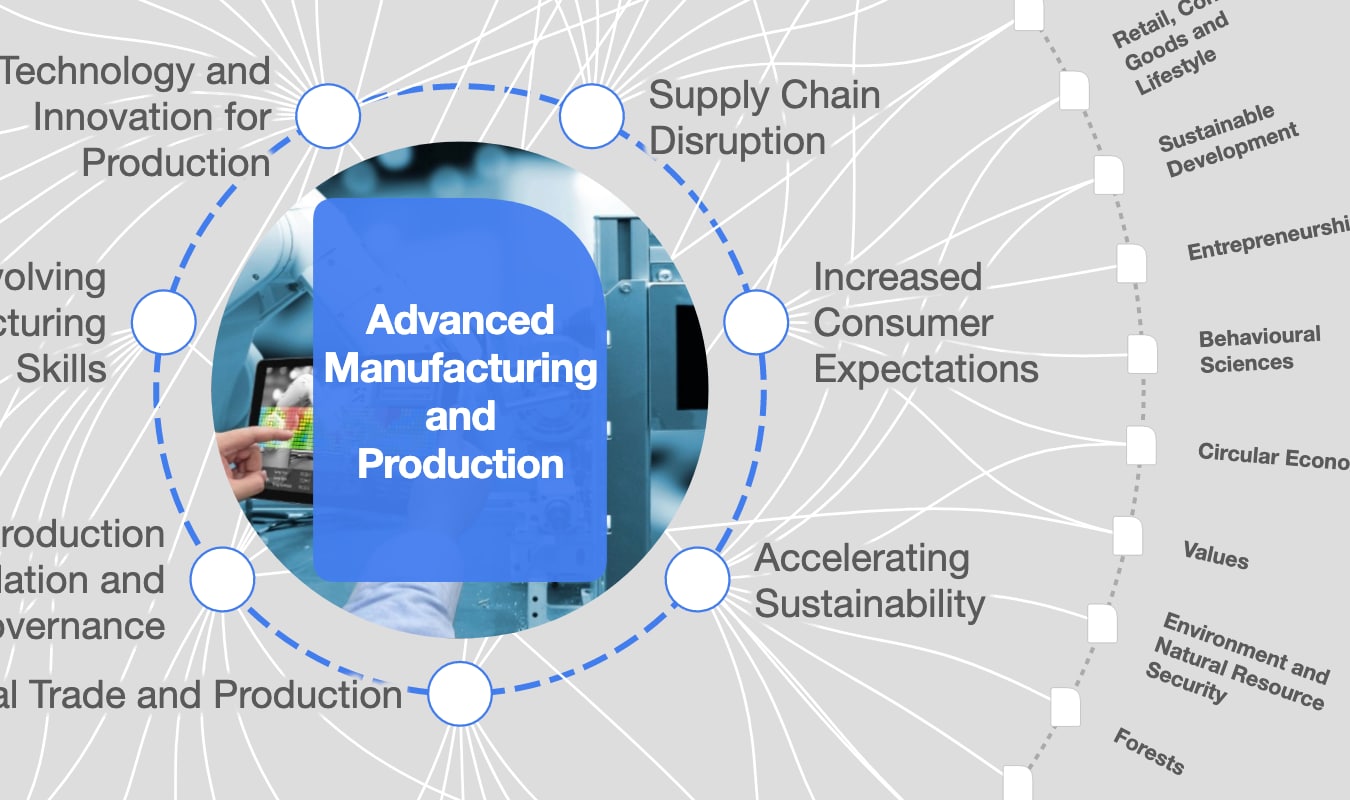Helping companies avoid disruptions to global supply chains

Emerging technologies, global climate emergency, and the reconfiguration of globalization are leading to global supply chain disruptions
The impact.
Emerging technologies, the world’s climate emergency and growing trade tensions between the US, China and Europe are disrupting supply chains, impacting trade.
More than two thirds of world trade currently takes place within global value chains - systems which operate internationally to produce and supply goods and services. But what happens to these systems when the Fourth Industrial Revolution and other global risks like climate start to affect production?
The World Economic Forum, in partnership with the United Nations Development Programme (UNDP), announced in September 2019 a new Strategic Value Framework to help all stakeholders along the global value chain understand and respond to disruptions brought on by significant global trends.

What's the challenge imposed by global supply chain disruptions?
Global value chains are essential to the world’s economy. Three main trends are currently disrupting these value chains and production systems, reshaping the distribution of global value: emerging technologies; the global climate emergency; and the reconfiguration of globalization.
Individually and in combination, these three trends have fundamental implications for how value is created and distributed along global value chains, and for how businesses define their strategies and nations advance sustainable development.
Consumer expectations, production technologies, changes in the flow of data, emerging digital platforms, risks to supply due to climate change and changes in trade barriers all affect production of goods and services (from cotton to smartphones and automobiles), and their delivery around the world.
To strengthen their role in the future global economic system, developed and developing countries, small and medium-sized businesses and multinational corporations need to understand the risks and opportunities associated with the impending changes to global value chains.
Recognizing the urgency of the situation, the World Economic Forum and the UNDP have undertaken a joint effort to develop a better understanding of the ongoing transformations from both a corporate and sustainable development standpoint.
In collaboration with Kearney, the partners developed a new Strategic Value Framework, released in Reshaping Global Value: Technology, Climate, Trade – Global Value Chains under Pressure.
Global value chains are undergoing profound changes. Stakeholders should no longer stand alone in this complex environment but rather form new partnerships and take a multistakeholder approach to more efficiently use, transform and trade resources. The World Economic Forum and United Nations Development Programme provide a pioneering platform, where public and private sectors, including international organizations, come together for collaborative action and gain access to advanced tools, such as the Strategic Value Framework.
”Our approach to reducing global supply chain disruptions.
The Strategic Value Framework explores three global value chains: the cotton, electronics, and automotive industries. It explains that by measuring and effectively responding to disruptions in these three global value chains, the total value could increase by about 65% over three years. No response to the disruptions could result in a loss of up to 28% across the value chains.
The framework helps companies to understand the risks and impact on their business. An interactive tool created as part of the framework allows companies to explore how disruptions could impact their existing global value chains, industrial development and investment strategies.
Bangladesh is the first country trialling the Strategic Value Framework in practice to tackle global supply chain disruptions. Outcomes of the implementation are expected soon.
The manufacturing textile sector represents 80% of Bangladesh total export. We need new partnerships and proactive approaches, with tools such as the Strategic Value Framework, to be better prepared for the future of production and global value chains.
”How can you get involved?
The Strategic Value Framework is an initiative of the Forum’s Centre for Advanced Manufacturing and Supply Chains. Companies are invited to join the platform to access this advanced tool and support ongoing industry-specific implications and outcomes through workshops, dialogues, interviews and more.
Latest update: 19 February, 2020.
Stay up to date:
Future of Manufacturing
Forum Stories newsletter
Bringing you weekly curated insights and analysis on the global issues that matter.
More impact on Manufacturing and Value ChainsSee all
Marco Aguilar
January 11, 2024







